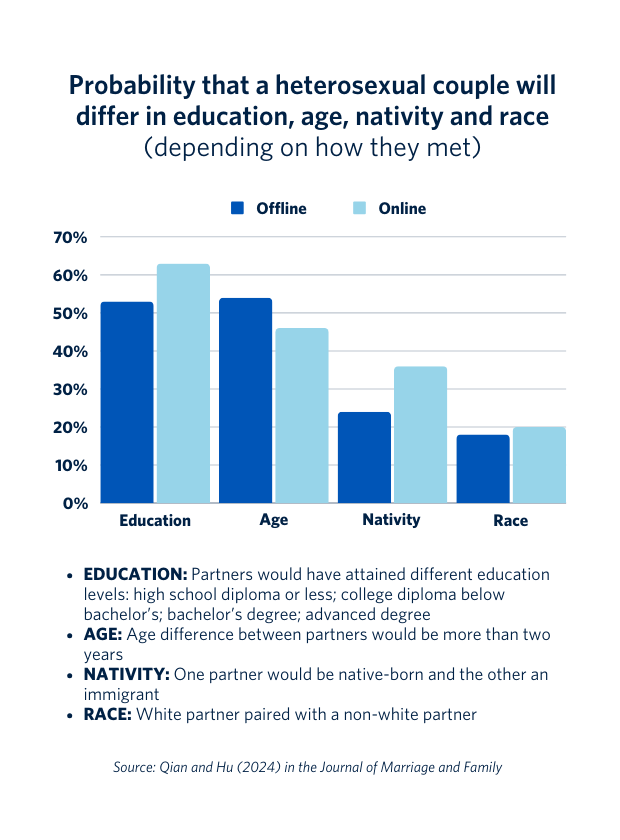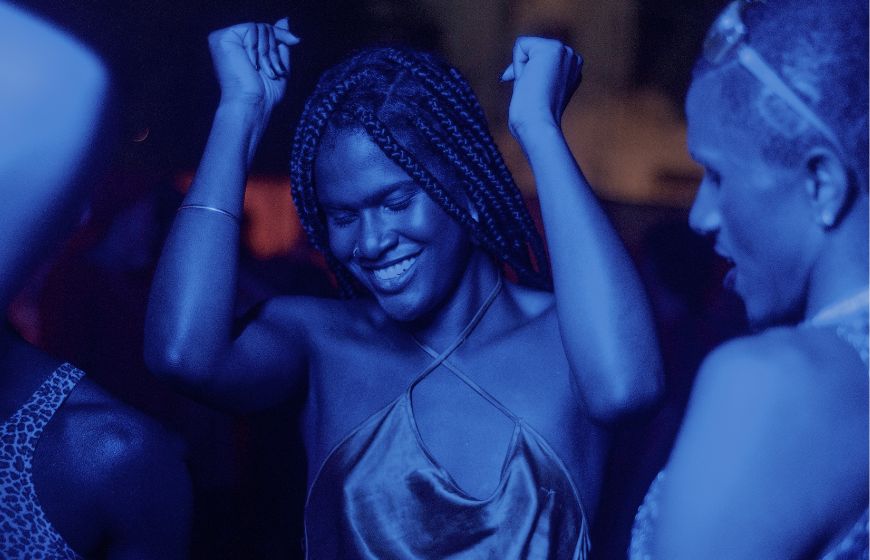Dating in the digital age: How online dating changes our partner selection
Arts & Humanities
The growing use of online dating websites, apps and chatrooms has an influence on the types of romantic partners Canadians choose, according to a new UBC sociology study.
The study, published Monday in the Journal of Marriage and Family, examined the relationship between how heterosexual couples meet in Canada and their selection of partners, in terms of education, race, nativity and age.
Researchers found that online dating promotes relationships between people of different education levels and those of different immigrant status (i.e., Canadian-born individuals and immigrants to Canada). Online dating also decreases the likelihood that people partner with someone of a different age.
“Online dating opens up a world of diverse partners for us, and this research shows how segregated our social networks can be,” said Yue Qian, the study’s lead author and associate professor of sociology at UBC.
The study, based on a 2018 national survey, compared data between Canadian couples who met online and those who met offline through various channels, such as work, school or church, or through introduction by friends or family.
“The prospective partners we meet through family and friends, or work and school, tend to be more similar to us in terms of education, immigration and race,” Qian said. “There are more opportunities to encounter someone different online.”
Some interesting patterns emerged in the study:
- Compared with offline dating, online dating is associated with a higher probability of an immigrant to Canada pairing with a Canadian-born partner—in particular, an immigrant man and a Canadian-born woman. This highlights the potential of dating technologies for blurring immigration-based social boundaries.
- Online dating also promotes relationships between people of different educational levels, compared to offline dating—in particular, more-educated men with less-educated women. This echoes prior research showing women online daters are reluctant to contact men with lower education.
- Although online dating does not promote interracial dating compared with offline dating in general, couples specifically introduced by family or friends were more likely to be of the same race than partners who met online. This suggests racial segregation in our existing social networks plays a strong role in brokering intimate relationships between individuals of the same race.
“Everyone is curious about how couples meet, and unpartnered people are often interested in how they can find a partner,” Qian said. “The overarching point is that, if you decide to use online dating options, keep an open mind and embrace the diverse pool.”
The research was the first of its kind in Canada, and Qian said the results are broadly consistent with findings in other Western countries.
In the future, she said, it would be interesting to research different online dating options (such as digital apps versus websites) or regional differences in dating patterns across Canada. Further research could also examine the topic among sexual- and gender-minority couples.
The study was co-authored by Yang Hu, Lancaster University, with funding support from the Social Sciences and Humanities Research Council of Canada.
Interview language(s): English, Mandarin

















